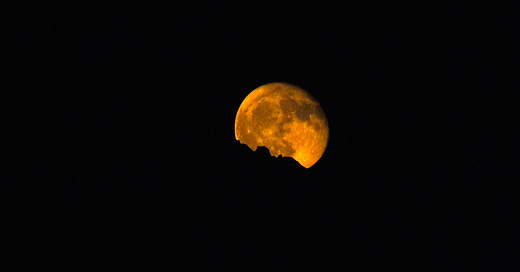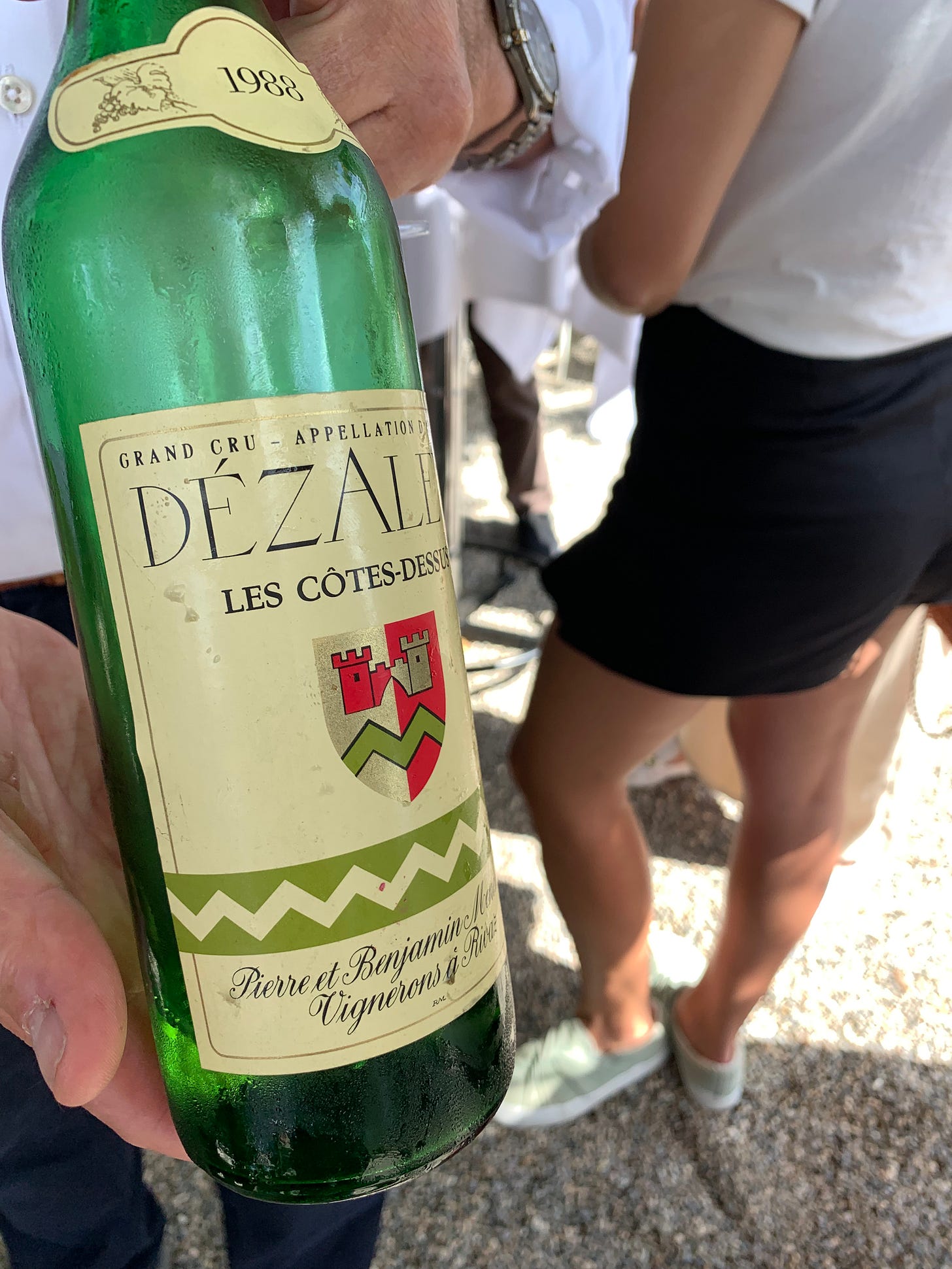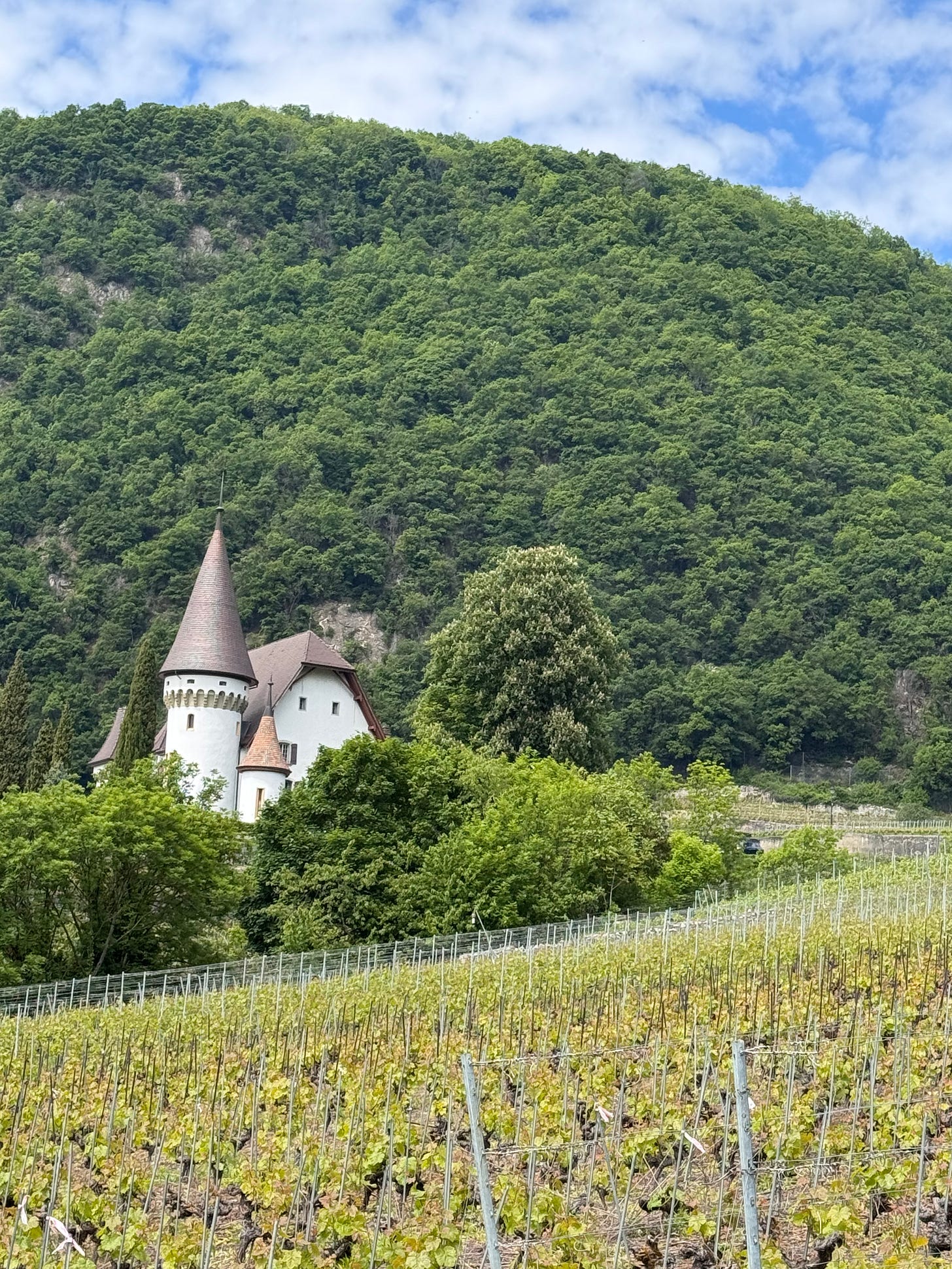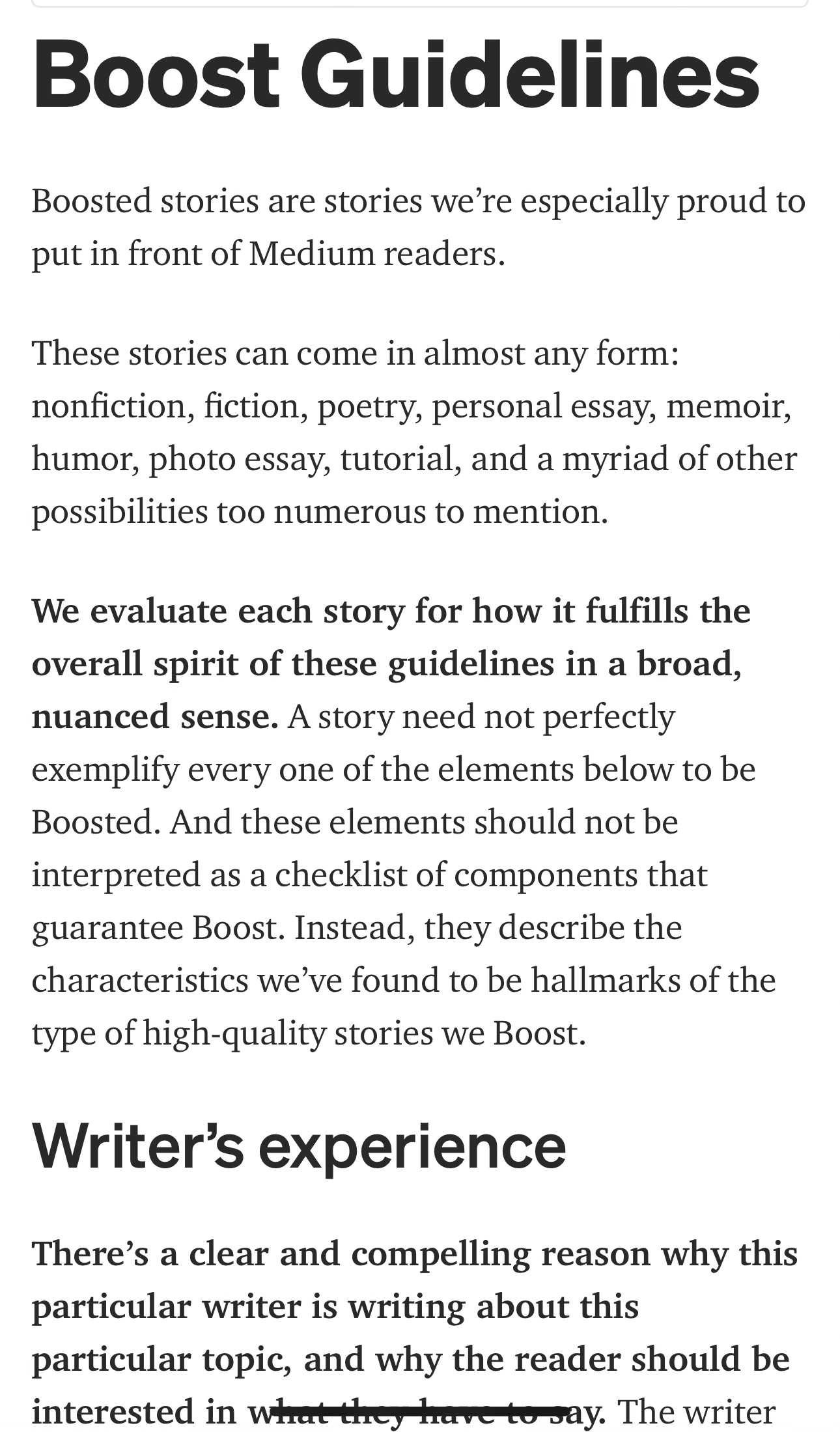Brows, Old, Potable, Shhhh, Traminer
We have more years to enjoy our wines, in Switzerland
Old age, living standards and birth year wines
Switzerland is notable for longevity, with life expectancy of 84.1 years on average. The USA, by comparison, is about 79. Aging longer is part of the reason that Switzerland is number two in the Human Development Index (HDI) compiled by the UN: it measures life expectancy, education and income. It’s also referred to as part of the living standard index, with GDP (report and graph, The Economist). Norwegians are tied for second for the HDI; they spend more time being educated and Icelanders even more, but the Swiss live longer than either.
How will we spend our longer lives? In Switzerland we’ll keep hiking and eating relatively sensibly, it appears. We’ll worry about our melting glaciers and continue our concern for the environment and the quality of what we eat and drink. We’ll negotiate political issues and find compromises we can live with at home, and we’ll continue to discreetly provide neutral diplomacy in the form of “good offices”, making it possible for two belligerent nations to speak—for example the US and China, creating a space to talk (rather than shout) about tariffs.
How we eat
Maybe the diet and the wine help although the Swiss diet has room for improvement. The new Swiss food pyramid encourages us to reduce cheese and meat. Thirty-one percent of the population is overweight and another 12% obese, although the upward trend began to level off in 2012. In 1992 overweight plus obese equaled 30% of the population. A report in January 2025 by the Swiss Nutrition Atlas study shows:
The estimated daily energy intake per capita per day for the adult population in 2024 is 2,278 kilocalories. Various findings show that too much saturated fatty acids, salt and added sugar are consumed. An analysis with regard to the Planetary Health Diet also shows an excessive consumption of animal products such as meat, dairy products and eggs. we might do what the French who can afford it do: buy their children birth-year bottles of wine and put them away. There’s a catch, though, if they’re going to live eight decades or more—most wines won’t last that long.
For more on the future of eating, starting with your next meal, the EAT-Lancet Commission planetary health diet is an intelligent resource.
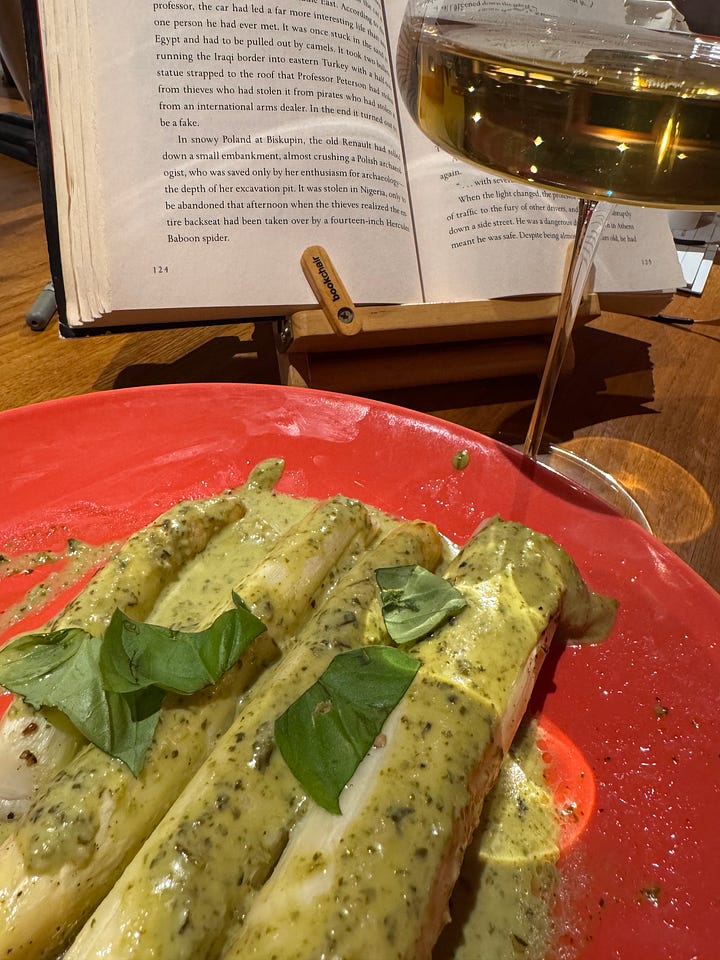
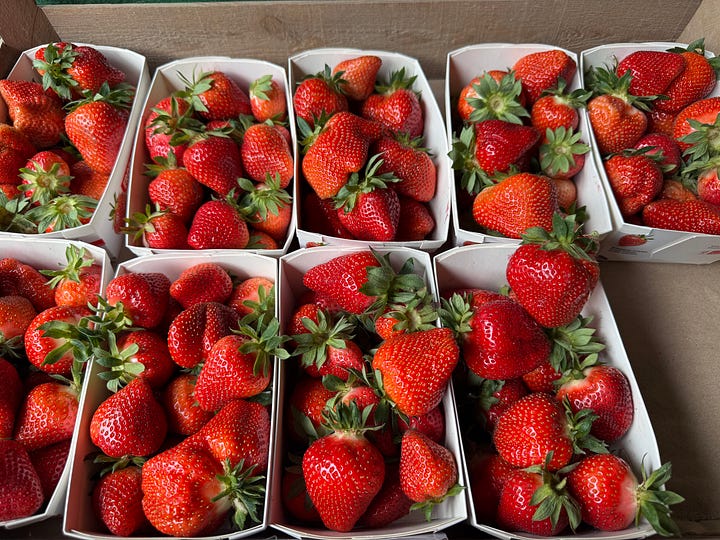

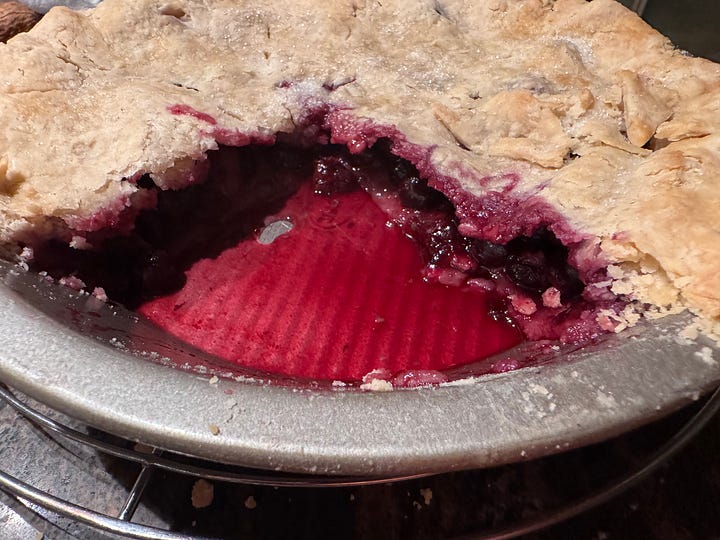
How we drink
Wine consumption fell significantly in 2024 in Switzerland, show figures published 25 April. It also fell markedly in neighbouring countries. Overall, consumption was down by 8%, although some reports, based on retail sales only, show a 5% drop. Worse news for local producers: the decline was 16% for Swiss wine, and the country’s share of all wine consumed fell from 38 to 35%. Last year was a low production year, normally a reason to sell older stock—but with consumption falling, little stock left the cellars. The most popular wines, in order: Pinot Noir, Chasselas, Merlot.
The reasons for the decline are multiple, but in general, Europeans are drinking less alcohol, wine and beer in particular. Growing awareness that alcohol intake should be limited for health reasons is one factor. Budgets are another. Swiss wines are still very good value for money, but because most are artisanal and not recipe-style mass-produced wines, they will never be the least expensive.
Something that I hope never changes is sharing good wine to celebrate life’s events. My suggestion is to buy a nice bottle of Swiss wine with aging potential when a child is born, and put it away, if you have a good cellaring place, until a day when you want to remind yourself how glad you are to have that child in this world. You might live to be 100, but don’t wait that long to celebrate.
Wine picks: Gewürz(Traminer) 2015, Orange 2020
A Swiss wine that often ages well is Traminer (Savagnin Blanc). In 2021 I had a beautiful 2012 Traminer from Le Petit Chateau. This particular 2015 wine is from nearby winery Cru de l’Hôpital and while it is called Traminer it’s actually a Gewürztraminer, close kin but not the same as Traminer wines from the Vully area. Ignore the confusion and drink the wine! The winery also makes a Traminer called Naturé, an interesting wine made quite differently, in line with the cellar’s move towards natural wines. Its highly unusual third fermentation promises a very long life.
I loved the Traminer (Mémoire wine) 2015 when it was young, a wild mix of exotic fruits and roses, a very complex wine, I found a 2015 bottle in my cellar recently and discovered that what it lost in fresh fruit it more than made up for in depth. I had it with fresh (well marinated) pan-cooked tuna, served with a pile of sliced peppers cooked in olive oil. I use a lot of herbs and spices with tuna and a touch of harissa oil, so the wine has to be a white big enough hold its own. It was a visually pleasing meal that tasted superb..
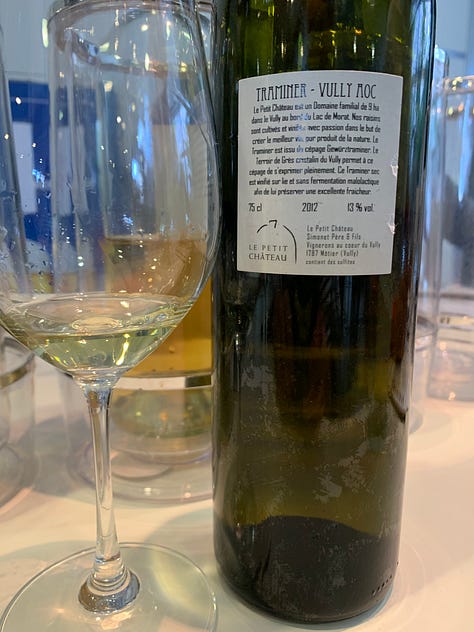
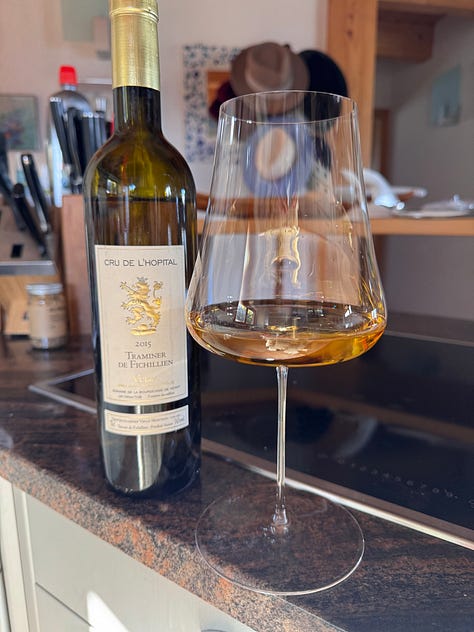
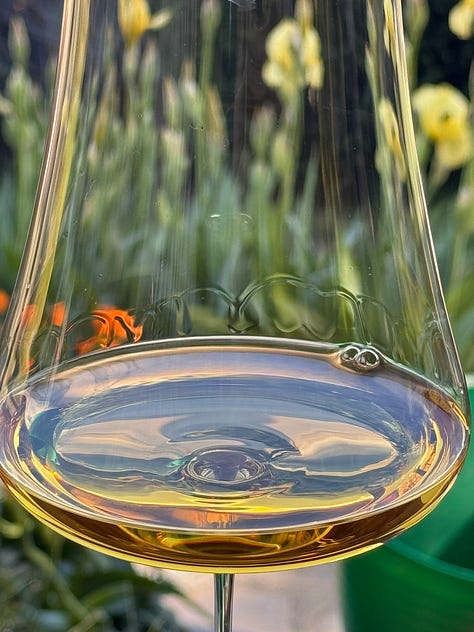
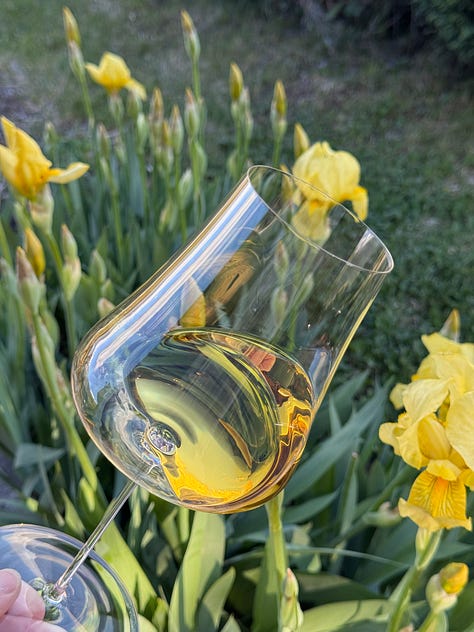
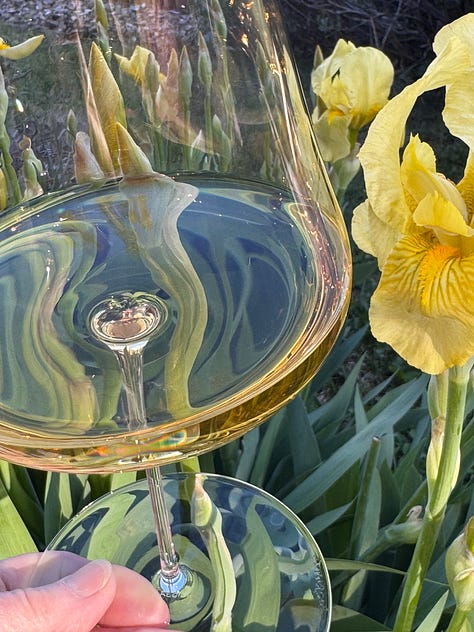
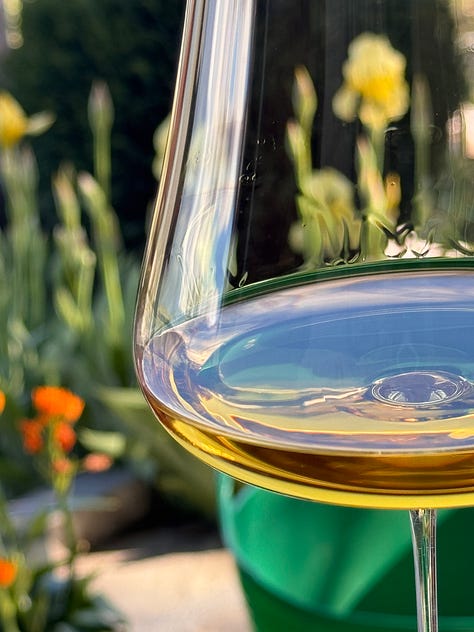
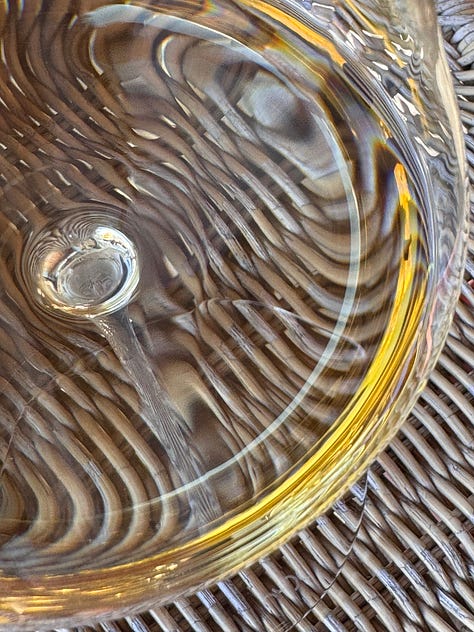
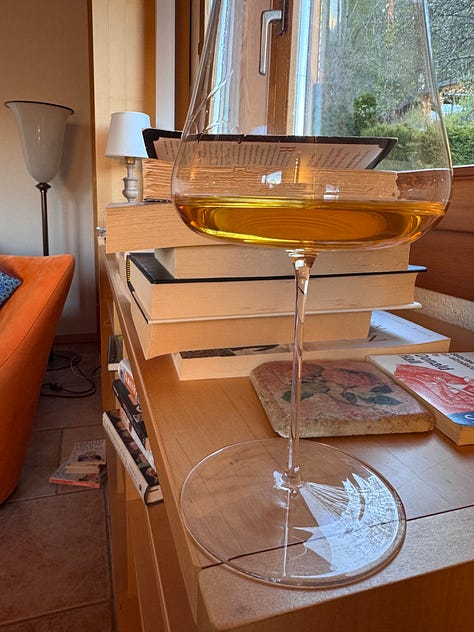
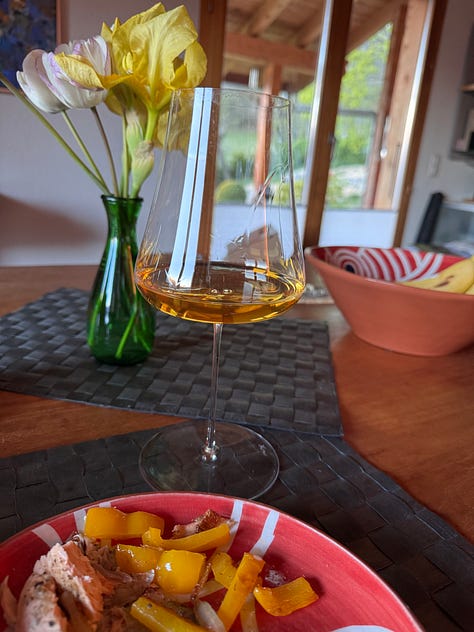
The hamlet of Twann, where Anne-Claire Schott produces her unusual collection of wines, is not far north of Vully, on the northern edge of Lake Biel/Bienne. She’s become known for her orange wines, with eight of them currently on her cellar list, as well as natural wines. This one is both. For the uninitiated, orange wines are white wines fermented with longer skin contact, vinified like red wines. They often taste more like dry reds than white wines. I’m not a huge fan of these, but this one, made from Pinot Gris, I found very pleasing, both as an aperitif and with a simple baked fish dinner. Mouth and nose resemble a Pinot Noir, with pepper notes, but it’s more floral. And the colour is simply stupendous.
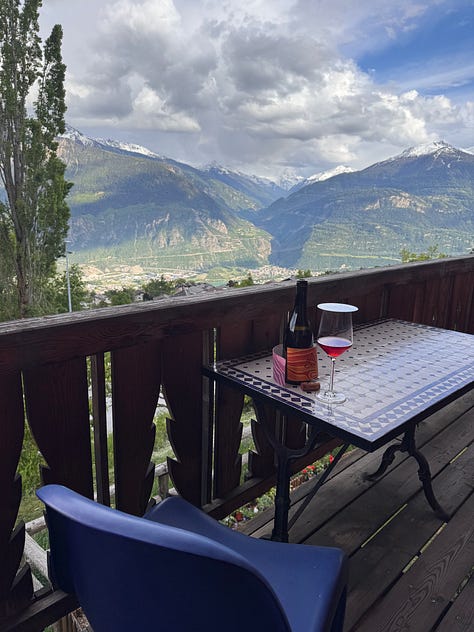
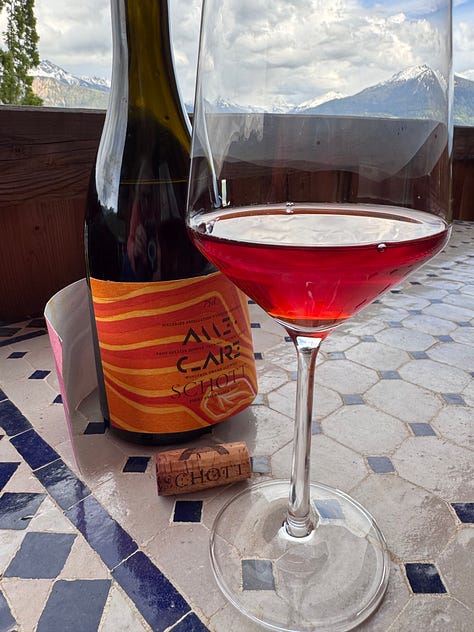
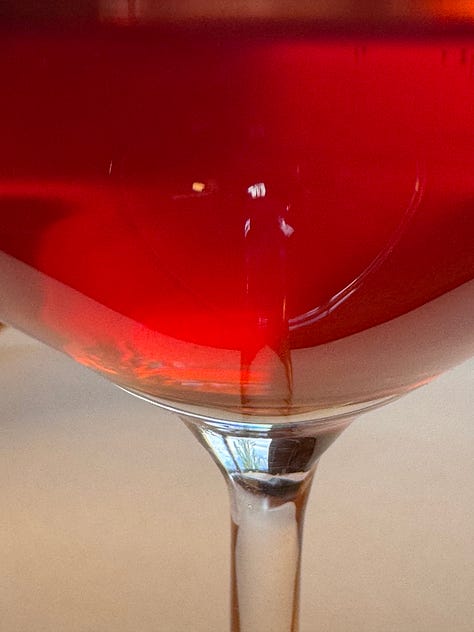
Highbrows and lowbrows
Do you know that “Neanderthals … did not possess a hair arch above the eye” so were unable to give the same kind of emotional performances as Homo sapiens? And that “eyebrows contain the largest number of nerve bundles in the entire face”? Italian architect Michele de Lucchi sent out a curious newsletter about eyebrows, the result of coming down with ocular shingles. I feel enormous sympathy for him, having suffered through the same this winter. You’re suddenly aware of your eyebrows in a way that even fashionistas are not, because your eyelid and your eyebrow on one side itch like crazy for weeks.
De Lucchi reminded me that 8th to 12th century Japanese women used to shave their eyebrows in order to redraw them higher. Ironically, while doing research into Chicago opera in 1921 for the novel I’m completing, I came across this photo of diva and Lyric director Mary Garden, under what looks like a Japanese influence. And then I realized that a photo of me at age 10 gave me wonderful long eyebrows because it was Halloween! Mom’s eyebrow pencil? If you want to see what kind of eyebrows are hot in 2025 … (hint: bushy is back, but not Frida’s)

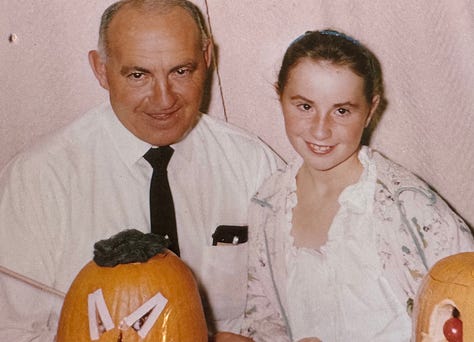

Europeans’ privacy and the USA
If you’ve read my recent newsletters you’ll know I moved off of Facebook, Instagram and What’sApp, a move that surprised few Americans but baffled many Europeans, especially those who happily use these to market their wine or other businesses. One reason was political, but another is shhhhhh, growing concerns over privacy and data protection. A recent New York Times opinion piece on Elon Musk’s DOGE data sweeps is just one of many articles that should alert Europeans to the need for greater care. The US passed a Federal Privacy Act in 1974, but as the NYT points out, the law has no teeth and Congress has not managed in the 50 years since then to reach an agreement on a new law. In other words: several band-aid fixes but no new law that takes into account the era of the internet and data collection.
That makes the United States the only country in the 38-member Organization for Economic Cooperation and Development without a data protection agency to enforce comprehensive privacy laws. In the European Union, each country has a dedicated data protection authority that can conduct investigations, write rules, issue fines and even demand a halt to data processing.
Wired noted 14 May that “Many people are unaware that data brokers even exist, let alone that their personal information is being traded” in an article, CFPB quietly kills rule to shield Americans from data brokers.
“Data brokers operate within a multibillion-dollar industry built on the collection and sale of detailed personal information—often without individuals’ knowledge or consent. These companies create extensive profiles on nearly every American, including highly sensitive data such as precise location history, political affiliations, and religious beliefs. This information is frequently resold for purposes ranging from marketing to law enforcement surveillance.”
Hiking Yvorne, canton Vaud
Just published separately: Yvorne hike. Description, map and photos of a basic 6 km loop hike (up/down 370m) in Yvorne, suggested wineries and wines, plus suggestions for extending it for a longer hike.
Out and about …
… is taking a short break from events.
Here and there
Potable water Did you know that we pay on average a mere 30 centimes a day in Switzerland to drink some of the world’s best water? And that our water, 80% of which comes from underground sources, is the most strictly controlled food product in the country? No need to buy bottled water here.
Travel to Britain If you are heading to the UK with a European non-British passport, Irish excepted, remember that as of 2 April 2025 you need an ETA, electronic travel authorisation.
Swiss, the airline, has run into a pilot shortage due to a mix of factors, reports SwissInfo, and 1,400 summer flights have been canceled. “The cancelations will affect long-haul flights—for example to Chicago, where services will be halved in September and October—and various short and medium-haul services.”
Hiking All Trails is introducing a useful new feature for its Plus membership, called Offline Area, with offline access to larger areas and all the trails there. A third level, Peak, will be rolled out to members outside the US in June. Plus is approximately US$40 a year and Peak is currently $80, but it’s unclear if that will be the international fee.
Memoir How to slice a pie (pie as a meditation on peace), which I sent via email to Ellen’s World subscribers, was promoted as a “Boosted” article on the publishing platform Medium (paywall, although your first visits are free). The version I published there is longer, a 27-minute read, than the Substack one you received. I’m chuffed, especially as some very positive feedback came my way as a result, and encouragement to submit it to magazines. Thanks for being such supportive readers.

